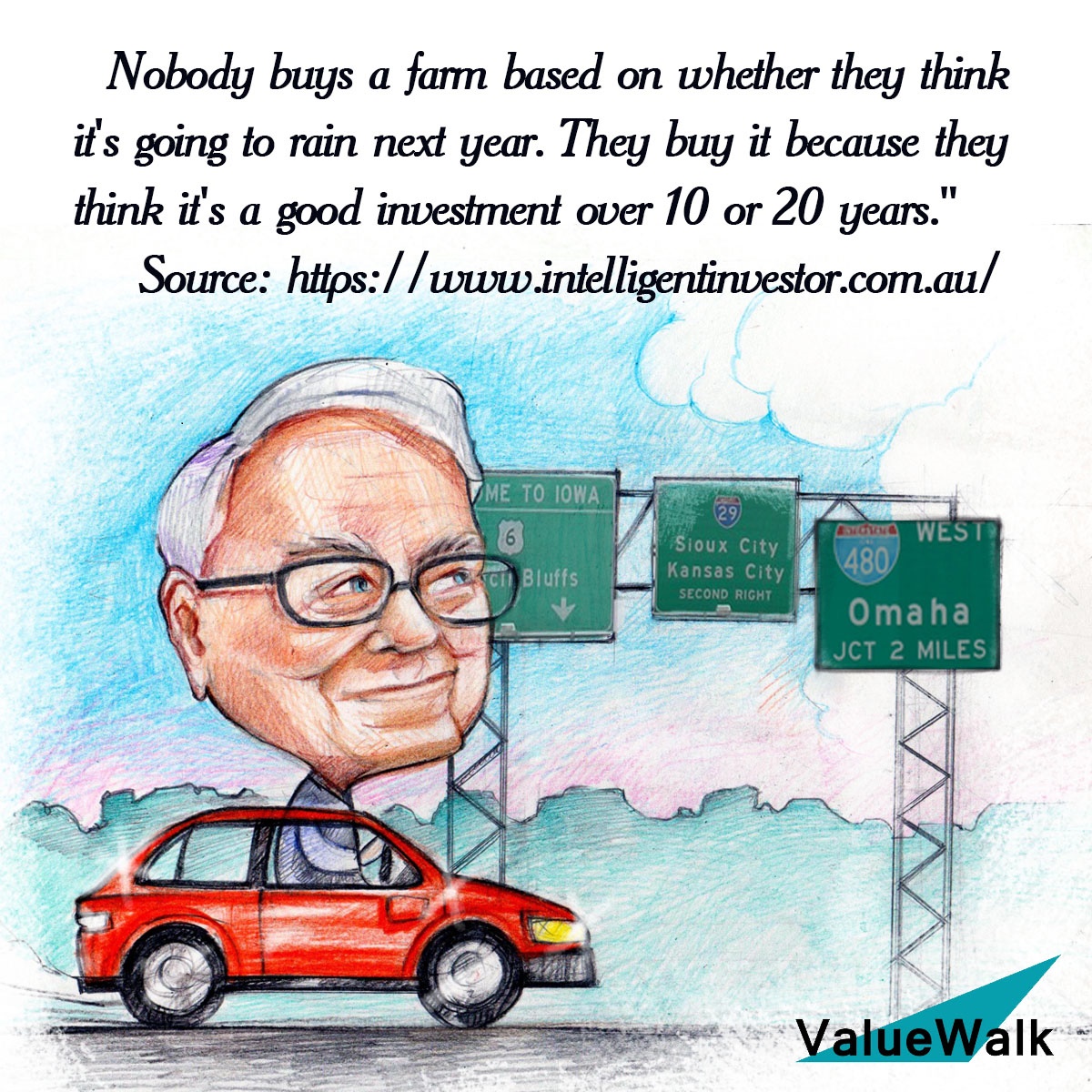Warren Buffett released his 2020 Letter to Shareholders of Berkshire Hathaway this morning. The 10 highlights are:
Q4 2020 hedge fund letters, conferences and more
(1) Main takeaway of Warren Buffett’s Letter to Shareholders: Buy and hold U.S. stocks and do not buy bonds at current historically low interest rates.
(2) “Berkshire’s 4 most valuable businesses” are (1) property/casualty insurance, (2) BNSF railroad, (3) its 5.4% stake in Apple, and (4) Berkshire Hathaway Energy (mentioned in that order, but Buffett considered Apple and BNSF to be equal).
(3) At Berkshire’s closing price of $364,580 on February 26, it is selling at 1.26 times book value (yearend 2020) which is below its average of 1.4 to 1.5 times book value in recent years (Calculation performed based on Berkshire’s income statement and balance sheet).
(4) Berkshire repurchased about 5% of its shares in 2020 for $24.7 billion. “Berkshire has repurchased more shares since year-end and is likely to further reduce its share count in the future.” Buffett emphasized that the company only engages in share repurchase programs when it believes shares are trading below their intrinsic value.
(5) “This year our annual meeting will be held in Los Angeles and Charlie will be on stage with me offering answers and observations throughout the 3 1⁄2-hour question period. I missed him last year and, more important, you clearly missed him. Ajit Jain and Greg Abel, will also be there.”
(6) Berkshire’s operating earnings rose 13.6% in Q4.
(7) It bought back $9 billion of its stock in the fourth quarter, the same amount it bought back in the third quarter. Holds cash, cash equivalents, and short-term investments of $138.3 billion at December 31, 2020, down from $145.7 billion at Sept. 30. Its equity portfolio is valued at $281 billion at December 31, 2020. Its market capitalization on February 26 was $568 billion.
(8) Praised Apple’s share buybacks which increased Berkshire’s stake from 5.2% to 5.4%. Its Apple investment was worth $120 billion at yearend. Explained how Berkshire shareholders benefit from the combination of the share buybacks of both Apple and Berkshire. Buffett strongly defended buybacks at Berkshire’s 2020 Annual Meeting in response to a question that I submitted that was selected by Becky Quick of CNBC.
(9) “Bonds are not the place to be these days” because of historically low interest rates.
(10) Acknowledged big mistake in paying too much for Precision Castparts in 2016 resulting in a write-down of $9.8 billion.
Article by Dr. David Kass

